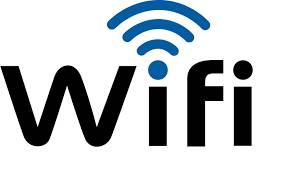Title: A Blueprint for Universal Access to Free Wi-Fi in Ghana
Introduction:
In today's digital age, access to the internet has become an essential aspect of our lives. It empowers individuals, drives economic growth, and fosters social development. However, the availability and affordability of internet connectivity remain a significant challenge in many regions, including Ghana. This essay aims to present a blueprint for achieving universal access to free Wi-Fi in Ghana, enabling citizens to harness the benefits of the digital revolution.
I. Infrastructure Development:
To establish free Wi-Fi across Ghana, the first step is to focus on infrastructure development. This involves expanding the existing network of internet service providers (ISPs) to ensure widespread coverage. Collaborations between the government, private sector, and international organizations should be fostered to invest in the construction of critical infrastructure such as fiber optic cables and satellite systems. This will significantly enhance the reach and quality of internet connectivity throughout the country.
II. Public-Private Partnerships:
Public-private partnerships (PPPs) play a crucial role in implementing sustainable solutions. The Ghanaian government should leverage these partnerships to create a conducive environment for ISPs to offer free Wi-Fi services. Incentives and tax breaks could be provided to encourage private entities to invest in infrastructure development and maintenance. Additionally, the government should engage with ISPs to negotiate affordable or subsidized internet data plans to enable the provision of free Wi-Fi to citizens.
III. Community-Based Connectivity:
Community-based initiatives can further amplify the efforts to achieve free Wi-Fi in Ghana. Local government bodies, non-profit organizations, and community leaders should collaborate to establish Wi-Fi hotspots in public spaces, such as libraries, schools, community centers, and marketplaces. These hotspots can be powered by solar energy, ensuring sustainability and reducing dependency on traditional power sources. Furthermore, educational institutions and businesses can contribute to nationwide Wi-Fi coverage by opening their networks to the public during non-working hours.
IV. Digital Literacy and Awareness:
While providing free Wi-Fi is essential, promoting digital literacy and awareness is equally crucial. The Ghanaian government should invest in comprehensive programs to educate citizens about the benefits and responsible use of the internet. These initiatives should target marginalized communities, emphasizing the importance of digital skills in enhancing employment opportunities, entrepreneurship, and access to vital services. By fostering digital literacy, Ghana can ensure that the benefits of free Wi-Fi are maximized and inclusive.
V. Regulatory Framework and Policy Reform:




No comments yet
Be the first to share your thoughts!